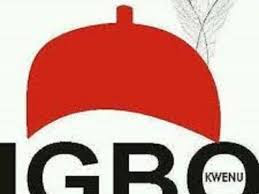Igbo History Review: Who are the IGBO? - Onyeji Nnaji
Before the Pyramids became significantly dedicated to the gratification of the enhanced history of the people of the east; the people among whom it is dully established that they peopled the ancient civilization crusade all over the globe, the Ignorant have been completely misconstrued. These people from the east were known for scarifications and indestructible ancient artistic emblems (known as Ichi) which are found as evidence in all the part of the world they civilized. They civilized the ancient Egypt, after which they established their presence in Anatolia Turkey, Europe India etc.
Apart from their cuneific writings, they did not leave their civilisers without traces of their language. It was also established, as Petrie dully affirmed in 1893 that these men of cornific writings and Ichi scarifications were the introducers of the pharaonic culture and believed to be the pharaonic race. Invariably, the pharaohs were not original inhabitants of Egypt. It is of evidence that the same people were the owners of the pyramid culture as Canadian Historians affirmed. Egyptian Book of the Dead refers to this people as the people of punt (land of the rising sun; the home of the gods).
Flinders Petrie, describing Igbo ancestors who founded Egypt as found in his findings as old as 8000BC and beyond, said thus,
The natives of the country arealways represented with unmistakable chiefly emblems for which one looks in vain among the infrequent portrayals of other races (Peopling, 17).
One of the features of the founders is that “the native of the country is always represented with unmistakable chiefly emblems”. The Nag Hammadi related the same information about the race of people who first settled on earth. “…They are kings. They are the immortal within the mortal,” (p. 219). Northrop Thomas, after caring a detailed anthropological research in Igbo land in 1913, chose to title his work, The King Is Everyone. Among the Igbo race, everyone is a king. The kingly emblem is represented through the Igbo traditional cap with which everyone is equal
Plato lamented the absence of the ancient wise men from the east who originally inhabited the ancient city of Atlanta before the island was destroyed at a time history cannot tell. Herodotus referred to them as belonging to the heart of Africa. Nag Hammadi offered almost the most credible information concerning these ancient scribes, historians and myth makers farther than Christopher Okigbo could wittingly represent them in his poem “Mother Idoto”.
The aforementioned book excavated in the dip sand of Egypt in the middle of twentieth century explains the people as the kingless society and a people among whom the terms father mother and child formed an axiom and represented by the first letter of each of the words as NNN (such as Nna, Nne and Nwa). No language of the world has this; not even of ancient or of modern, except the Igbo language. And axiomatically, this is the language the world had before the dispersion which the Christian Bible marked as the ordeal of Babel.
Of course, it may be striking for you to hear for the first time that biblical history of origin is not different from the popular Nri creation myth. The contributions of other ancient books not mentioned above were dully highlighted in the book Aspects of the Ancient African Metaphysics by the same author. This time, the application of the historical incomprehensible detail is what this book offers.





.jpeg)

Comments
Post a Comment